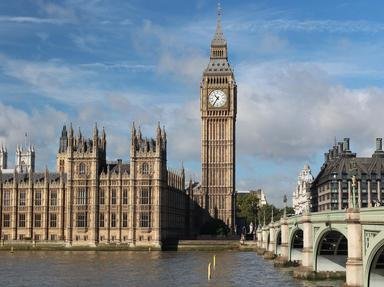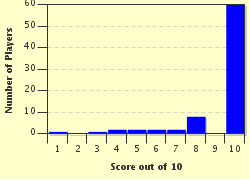Quiz Answer Key and Fun Facts
1. David Cameron, 2016. Resigned after losing referendum on remaining in the European Union.
2. Tony Blair, 2007. Resigned due to pressure from his party, and (perhaps) a pact made at a restaurant in 1994.
3. Margaret Thatcher, 1990. Resigned after not winning first ballot of leadership contest by large enough margin.
4. Harold Wilson, 1976. Surprise announcement, not explained.
5. Harold Macmillan, 1963. Beset by scandal, officially resigned due to ill health.
6. Anthony Eden, 1957. Resigned after disastrous Suez operation, officially due to ill health.
7. Winston Churchill, 1955. Resigned due to failing health.
8. Neville Chamberlain, 1940. Resigned after disastrous Norwegian engagement and failure to form coalition government.
9. Stanley Baldwin, 1937. Resigned at age 69. No reason apart from that.
10. James Ramsay MacDonald, 1935. Resigned due to failing health.
Source: Author
Upstart3
This quiz was reviewed by FunTrivia editor
stedman before going online.
Any errors found in FunTrivia content are routinely corrected through our feedback system.

